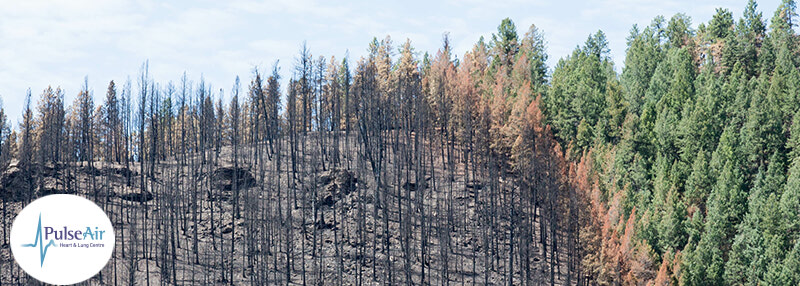Wildfires are a growing concern worldwide, and their smoke carries hidden dangers for our lungs, especially for those with existing respiratory issues. The fine particles in wildfire smoke, known as PM2.5, can deeply penetrate our lungs, leading to inflammation and reduced lung function.
What is PM2.5?
PM2.5 stands for particulate matter that’s 2.5 micrometers in diameter or smaller. These tiny particles can bypass our natural defenses and get into our lungs. Over time, exposure to PM2.5 can lead to serious health problems like chronic bronchitis, decreased lung function, and even lung cancer.
How to Protect Yourself from Wildfire Smoke
Here are some steps you can take to protect your lungs from wildfire smoke:
- Check the Air Quality: Keep an eye on local air quality reports to know when the smoke levels are high.
- Create a Clean Air Space: Use a portable air cleaner to keep the air inside your home clean during wildfires.
- Limit Time Outdoors: When the air quality is poor, try to stay indoors, particularly if you have conditions like asthma or COPD.
Supporting Your Lung Health
In addition to these precautions, it’s important to keep your lungs healthy by:
- Staying Active: Regular exercise can help strengthen your lungs and improve your overall health.
- Eating Right: A balanced diet can support lung health.
- Avoiding Tobacco: Stay away from tobacco smoke to keep your lungs in good shape.
Navigating the Smoky Haze with Informed Choices
Understanding the impact of wildfire smoke is the first step in mitigating its health risks. By integrating these strategies into our lives, we can navigate the smoky haze with resilience and informed choices.
For more tips and information on how to keep your lungs healthy, visit PulseAir Heart and Lung Centre.


